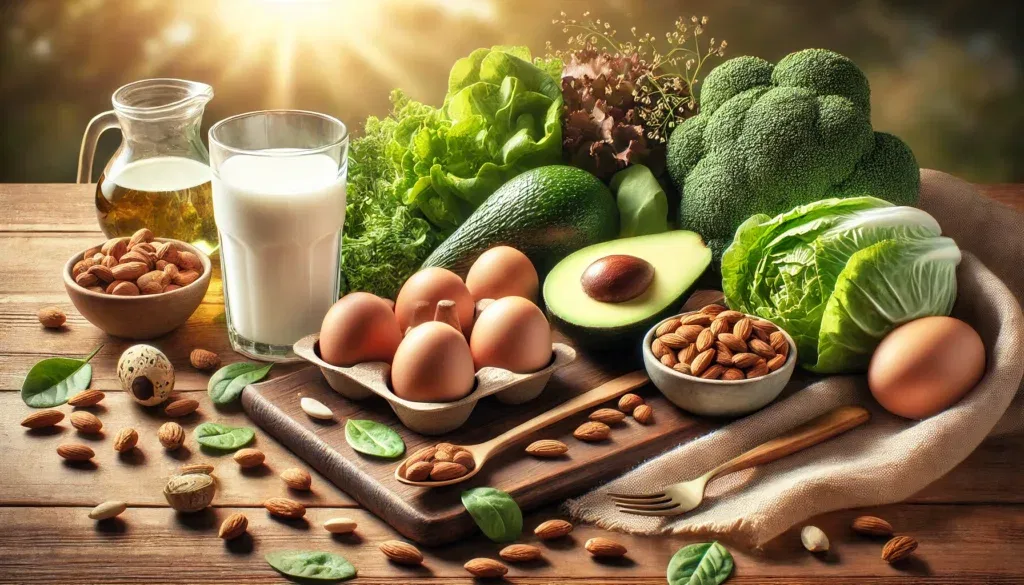Understanding Testicular Shrinkage and Low Testosterone
Testicular size and function play a crucial role in male reproductive health and hormonal balance. Many men notice their testicles becoming smaller over time, often accompanied by concerns about testosterone levels, fertility, and overall well-being. Shrinking testicles, or testicular atrophy, can be caused by various factors, including hormonal imbalances, lifestyle choices, medical conditions, and aging. Understanding why testicles shrink is the first step toward addressing the issue and finding natural ways to increase testicle size and boost testosterone production.
You may also like: How to Increase Testosterone Levels Naturally: Science-Backed Strategies for Men’s Health & Longevity
Low testosterone is commonly associated with small testicle size. Testosterone, the primary male hormone, is produced in the testicles and regulates libido, muscle mass, bone density, and overall energy levels. When testosterone levels drop, testicular function diminishes, leading to potential shrinkage and decreased sperm production. The relationship between testicle size and testosterone is complex, but addressing one often benefits the other. If you have ever wondered, “Why are my balls so small?” or “Does small testicles mean low testosterone?” you are not alone. These concerns are widespread and deserve an in-depth exploration of their causes and solutions.

Causes of Shrinking Testicles and Low Testosterone
Testicular shrinkage can result from a variety of physiological and environmental factors. One of the most common causes is hormonal imbalance. The body’s endocrine system regulates testosterone production, and any disruption—such as an increase in estrogen levels or a deficiency in luteinizing hormone (LH)—can lead to reduced testicle size. Conditions like hypogonadism, a medical disorder where the testes fail to produce sufficient testosterone, are often linked to this problem.
Another contributing factor is varicocele, an enlargement of the veins in the scrotum. This condition affects blood flow and temperature regulation within the testicles, potentially leading to shrinkage. Additionally, chronic illnesses such as diabetes and liver disease can interfere with testosterone synthesis, causing the testicles to become smaller. Medications, including steroids and certain antidepressants, may also contribute to testicular atrophy.
Lifestyle choices play a significant role in testicular health. Smoking, excessive alcohol consumption, drug use (such as anabolic steroids and opioids), and poor diet all negatively impact hormone production. Sedentary behavior and lack of physical activity can further exacerbate the problem. The modern diet, high in processed foods, unhealthy fats, and low in essential nutrients, can hinder optimal testosterone levels and testicular function. Stress is another critical factor; chronic stress elevates cortisol levels, which suppress testosterone production. These factors combined can explain why your testicles may be smaller and why you might experience symptoms of low testosterone.
How to Increase Testicle Size Naturally
There are several natural approaches to increasing testicle size and boosting testosterone levels. The first and most crucial step is making lifestyle modifications that support overall hormonal balance.
1. Nutrition for Testicular Health
A nutrient-rich diet is essential for maintaining optimal testosterone levels and testicular size. Foods high in zinc, vitamin D, healthy fats, and antioxidants should be prioritized. Zinc, in particular, is a crucial mineral for testosterone production and sperm health. Foods like oysters, beef, pumpkin seeds, and eggs provide ample zinc.
Healthy fats from sources such as avocados, nuts, olive oil, and fatty fish help support hormone synthesis. Testosterone is a steroid hormone, meaning it is derived from cholesterol. A diet too low in healthy fats can impair testosterone production. Vitamin D, obtained from sunlight exposure and foods like salmon and fortified dairy products, also plays a vital role in hormone balance. Antioxidants from colorful fruits and vegetables help protect testicular cells from oxidative damage, which can contribute to shrinkage.
2. Exercise and Physical Activity
Regular physical activity, particularly resistance training and high-intensity interval training (HIIT), is a powerful way to boost testosterone and maintain healthy testicular function. Strength training exercises like squats, deadlifts, and bench presses stimulate testosterone production and improve overall circulation, promoting optimal testicle size.
Excessive body fat, particularly around the abdomen, contributes to elevated estrogen levels, which can suppress testosterone and lead to testicular shrinkage. Engaging in a consistent fitness regimen helps maintain a healthy weight, reducing the likelihood of hormonal imbalances. Additionally, activities such as yoga and stretching can improve blood flow to the pelvic region, ensuring better testicular function.
3. Managing Stress and Sleep Quality
Chronic stress and poor sleep are detrimental to testosterone levels and testicular health. High cortisol levels, the stress hormone, inhibit testosterone production and contribute to fatigue, weight gain, and muscle loss. Implementing stress-reducing techniques such as meditation, deep breathing, and spending time in nature can significantly improve hormone balance.
Quality sleep is essential for testicular health and testosterone synthesis. The majority of testosterone production occurs during deep sleep cycles. Ensuring at least seven to nine hours of uninterrupted sleep per night helps regulate hormones and prevents testicular shrinkage. Avoiding blue light exposure from screens before bedtime, maintaining a consistent sleep schedule, and optimizing sleep hygiene can enhance hormonal health.
4. Avoiding Toxins and Endocrine Disruptors
Environmental toxins and endocrine disruptors found in plastics, pesticides, and household chemicals can interfere with testosterone production. Reducing exposure to these harmful substances by using glass or stainless steel containers, consuming organic produce, and avoiding synthetic personal care products can help protect testicular health. Certain chemicals found in processed foods, such as artificial sweeteners and preservatives, may also contribute to hormonal imbalances and should be minimized.
5. Supplementation for Testicular Health
In addition to dietary improvements, certain supplements can aid in maintaining or increasing testicle size. Fenugreek, ashwagandha, D-aspartic acid, and tongkat ali are known for their testosterone-boosting properties. These herbs and compounds help stimulate natural hormone production and enhance libido and muscle growth. Omega-3 fatty acids from fish oil supplements also support testicular function and reduce inflammation.

Frequently Asked Questions: Small Testicle Size, Testosterone, and Men’s Health
1. Why are my testicles so small—could it be genetic or something else?
While genetics play a significant role in testicular size, various other factors may also contribute. For example, chronic stress and exposure to certain environmental toxins can lead to shrinking testicles over time. Certain medical conditions, including varicocele or hormonal imbalances, may also be responsible. It’s essential to consult with a healthcare professional to explore potential underlying causes, especially if small testicle size is accompanied by other symptoms. Lifestyle factors such as excessive alcohol consumption can also temporarily reduce testicular size.
2. How can you make your balls bigger naturally—are supplements effective?
Certain natural supplements, like zinc or vitamin D, might indirectly support testicular health by improving testosterone production, potentially helping to increase testicular size. However, it’s crucial to select supplements supported by scientific evidence and avoid unverified claims. Strength training and proper sleep have demonstrated practical benefits in increasing testicular size by supporting overall hormonal balance. Regularly reducing stress through mindfulness practices or meditation can also positively affect testicular health. Before starting any supplements, consult a healthcare professional to assess potential benefits and risks.
3. Does having small balls mean you have low testosterone?
Not necessarily. While small balls can indicate low testosterone (especially if they’re noticeably shrinking), testicle size alone isn’t a definitive measure. Many men with average or smaller testicles have perfectly normal testosterone levels, while others with larger testicles may have hormonal deficiencies. Blood tests measuring hormone levels are more accurate than simply assessing testicular size visually. Consulting with a healthcare professional is key for a comprehensive evaluation rather than self-diagnosing based solely on testicle size. Regular screenings help clarify your testosterone status accurately.
4. If my scrotum size is small, does that affect fertility?
Scrotum size itself does not directly affect fertility, but the size and health of your testicles within the scrotum can be indicators. Smaller testicles may produce fewer sperm, potentially impacting fertility. However, it’s essential to consider sperm count, quality, and motility rather than focusing solely on size. Lifestyle adjustments, such as a balanced diet and reducing exposure to heat (e.g., limiting hot baths), can improve testicular function and fertility potential. If fertility concerns exist, seek a fertility evaluation from a qualified healthcare provider.
5. What lifestyle habits can lead to shrinking testicles?
Several habits can contribute to shrinking testicles, including chronic steroid use, heavy alcohol consumption, and obesity. Prolonged stress and insufficient sleep may also negatively affect testicular health and hormone production. Exposure to endocrine disruptors, such as certain plastics and chemicals found in pesticides, can impact hormone balance and result in smaller testicles. Regularly reviewing your lifestyle habits and making adjustments like improving diet and reducing alcohol intake can mitigate these effects significantly. Incorporating exercise routines and reducing toxin exposure are beneficial preventative steps.
6. Can you increase testicular size through exercise?
Exercise itself doesn’t directly increase testicular size; however, strength training and aerobic exercises can enhance testosterone production, indirectly supporting testicular health. Squats, deadlifts, and high-intensity interval training (HIIT) have been shown to increase testosterone naturally, potentially benefiting testicular size indirectly. Regular exercise also improves blood flow, essential for optimal testicular function. Ensure adequate recovery and avoid overtraining, as excessive strain can negatively impact hormonal balance. Combine exercise with balanced nutrition for maximum benefit.
7. How long does it take to notice an increase in testicle size after lifestyle changes?
After implementing lifestyle changes—like dietary improvements, reduced alcohol intake, and better sleep—you might notice subtle improvements in testicle health within three to six months. Hormonal adjustments, however, can take longer to manifest physically, often requiring six months to a year for noticeable changes in testicular size. Consistency and patience are essential, as hormones and reproductive organs adapt gradually. Regular medical checkups can track your progress effectively and accurately measure improvements. Personal variations are normal, so individual timelines can vary significantly.
7. Is there a link between low testosterone, small testicles, and mental health?
Yes, low testosterone levels linked to small testicles can correlate with mental health challenges, such as depression, anxiety, and reduced self-esteem. Testosterone plays a critical role in mood regulation and cognitive functions. Men experiencing both low testosterone and small testicles often report feeling fatigued, less motivated, and emotionally unstable. Addressing testosterone levels through medical evaluation, therapy, or lifestyle adjustments can significantly enhance mental well-being and quality of life. Consider psychological support in conjunction with medical treatments for comprehensive mental health care.
7. Is hormone therapy the only solution if you have shrinking testicles?
Hormone replacement therapy is a common approach but isn’t the only solution for shrinking testicles. Identifying and addressing underlying causes, such as nutritional deficiencies, medication side effects, or lifestyle factors, can also be effective. Natural methods, including dietary adjustments and herbal supplements like ashwagandha or tribulus terrestris, can complement traditional treatments. Always consult an endocrinologist to evaluate all potential treatment options thoroughly. Combining medical intervention with natural lifestyle approaches often provides the most comprehensive solution.
8. Does aging naturally lead to small testicles and lower testosterone?
A slight reduction in testicular size with age is normal due to hormonal changes, particularly decreased testosterone production after 30. However, significant shrinking testicles or symptoms like fatigue and reduced libido might indicate abnormal hormonal imbalances requiring medical assessment. Maintaining an active lifestyle, balanced diet, and stress management strategies can minimize these age-related effects. Regular health checkups help detect early hormonal imbalances. Prevention through healthy habits can mitigate noticeable testicular shrinkage with aging.
7. Is small testicle size reversible, or is it permanent?
Small testicle size can sometimes be reversible, especially if the cause is temporary, such as excessive stress, poor diet, or alcohol consumption. When underlying issues are addressed, testicular size may recover gradually. Permanent size reduction occurs when prolonged testosterone deficiency or medical conditions, such as untreated varicoceles, cause lasting damage. Early detection and proactive management significantly increase the likelihood of successful recovery or stabilization. Always consult a medical professional to determine appropriate interventions.
7. Are small balls a sign of sexual dysfunction?
Small balls alone aren’t definitive evidence of sexual dysfunction. However, if small balls accompany symptoms like low libido, erectile dysfunction, or reduced sexual performance, it may indicate low testosterone levels. Addressing lifestyle factors that influence testosterone—such as nutrition, exercise, and sleep—can improve both sexual health and testicular health. Emotional and psychological factors also heavily influence sexual function. Consulting with both medical and psychological professionals provides a comprehensive approach to restoring sexual wellness.
8. Is there a link between low testosterone, small testicles, and mental health?
Yes, low testosterone levels linked to small testicles can correlate with mental health challenges, such as depression, anxiety, and reduced self-esteem. Testosterone plays a critical role in mood regulation and cognitive functions. Men experiencing both low testosterone and small testicles often report feeling fatigued, less motivated, and emotionally unstable. Addressing testosterone levels through medical evaluation, therapy, or lifestyle adjustments can significantly enhance mental well-being and quality of life. Consider psychological support in conjunction with medical treatments for comprehensive mental health care.
9. Is hormone therapy the only solution if you have shrinking testicles?
Hormone replacement therapy is a common approach but isn’t the only solution for shrinking testicles. Identifying and addressing underlying causes, such as nutritional deficiencies, medication side effects, or lifestyle factors, can also be effective. Natural methods, including dietary adjustments and herbal supplements like ashwagandha or tribulus terrestris, can complement traditional treatments. Always consult an endocrinologist to evaluate all potential treatment options thoroughly. Combining medical intervention with natural lifestyle approaches often provides the most comprehensive solution.
10. Does aging naturally lead to small testicles and lower testosterone?
A slight reduction in testicular size with age is normal due to hormonal changes, particularly decreased testosterone production after 30. However, significant shrinking testicles or symptoms like fatigue and reduced libido might indicate abnormal hormonal imbalances requiring medical assessment. Maintaining an active lifestyle, balanced diet, and stress management strategies can minimize these age-related effects. Regular health checkups help detect early hormonal imbalances. Prevention through healthy habits can mitigate noticeable testicular shrinkage with aging.

Conclusion: Reclaiming Testicular Health and Testosterone Balance
Testicular shrinkage and low testosterone levels can be distressing, but they are not irreversible. By making strategic lifestyle changes, focusing on proper nutrition, engaging in regular exercise, managing stress, and avoiding harmful environmental toxins, men can naturally enhance their testicle size and overall hormone health. Understanding the root causes of testicular shrinkage allows for proactive steps toward improvement, ensuring optimal testosterone levels and reproductive function.
If you have ever questioned, “How can you make your balls bigger?” or “Does small balls mean low testosterone?” rest assured that natural solutions exist. Implementing these evidence-based strategies can help restore testicular health, increase testosterone levels, and enhance overall vitality and well-being.
testicular health, natural testosterone boosters, male hormone balance, testicle shrinkage prevention, sperm health improvement, increasing testicle size, male reproductive wellness, testosterone optimization, hormonal balance for men, natural ways to boost testosterone, testicle function improvement, endocrine health, fertility enhancement, testicular atrophy solutions, low testosterone remedies, exercise for hormone health, stress management for testosterone, nutrition for testicular health, libido enhancement strategies, testosterone-friendly lifestyle
Further Reading:
Trying to Grow Testicles with Exercise and Supplements Is Unproven and Risky
What causes testicular atrophy?
8 Proven Ways to Increase Testosterone Levels Naturally
Disclaimer: The information provided in this article is for general informational purposes only. The content does not constitute professional advice of any kind, including but not limited to medical, legal, or financial advice. HisHealthMag and its contributors make no representations or warranties regarding the accuracy, completeness, or reliability of the information presented. Always seek the advice of a qualified professional for any specific concerns or questions you may have. Neither HisHealthMag nor its authors assume any responsibility or liability for any actions taken based on the information provided in this article. The views and opinions expressed are those of the author(s) and do not necessarily reflect the official policy or position of HisHealthMag.





